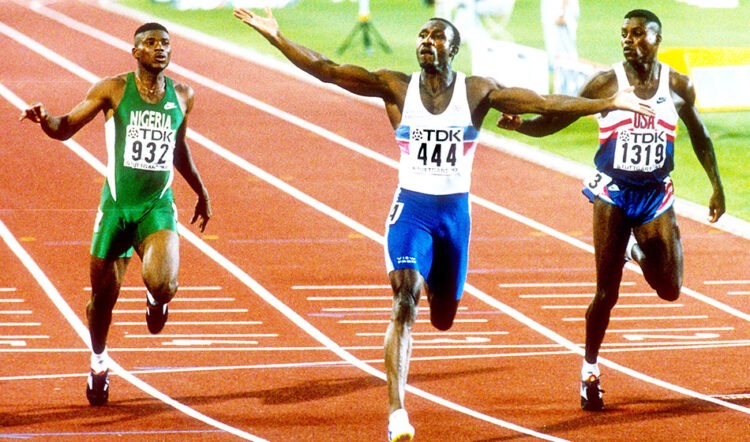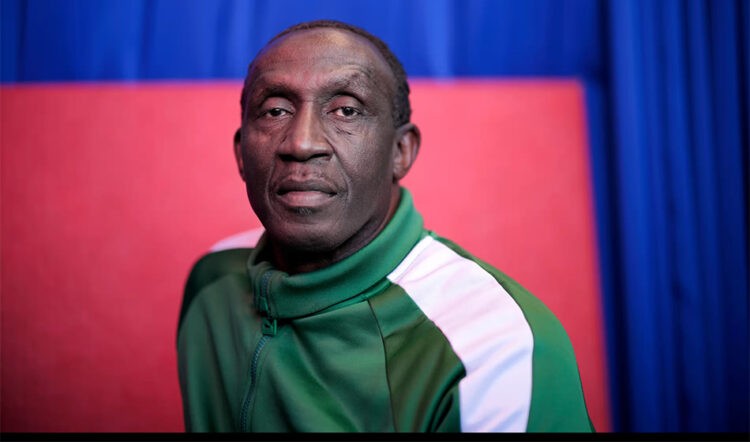British sprinting great Linford Christie speaks to AW about documentary making, being able to live up to the hype and why he feels unwelcome in his sport
During the Paris Olympics, “Puma House” was a safe haven for the athletes who are sponsored by the brand. Fitted out with good food and multiple areas to relax, tucked away discreetly in Saint Denis and not too far from the Stade de France, it was a place to refuel, to clear the mind, to celebrate or prepare for the challenge ahead.
If any of those athletes felt in need of an expert view or two, then a number of former stars were also on hand to lend an ear or provide words of wisdom and encouragement.
From former 800m world record-holder Wilson Kipketer to former men’s pole vault world record-holder Renaud Lavillenie, the big names were only too happy to hang out. Among their number was Linford Christie, who still cuts the same distinctive and imposing figure that he did at his Olympic-winning peak.
He’s 64 now but, as he chews the fat in the sunshine with Matthew Hudson-Smith on the day after the Briton sprinted his way to 400m silver, the man who once simultaneously held the Olympic, world, European and Commonwealth 100m titles looks to be in his element discussing a sport he just can’t shake off.
Listening, watching, learning and being surrounded by athletes, is what he still loves to do. Christie moved straight from the track to coaching and is kept more than occupied by a group that features the likes of Paris relay medallist Bianca Williams. Yet, as he moves to a quiet corner to chat with AW, still he feels like a man on the fringes.

Linford Christie (Mark Shearman)
As was outlined by the recent BBC documentary Linford, his has not been a straightforward journey through the sport. Whether it be his treatment at the hands of some sections of the tabloid media, or the two-year ban he has been dogged by since testing positive for nandrolone in 1999 after he had retired from competitive sprinting (he was cleared by British Athletics but the ban was upheld by the IAAF), there has been plenty of pain to sit alongside the joy of the 24 major championships medals he won.
As my colleague Jason Henderson recently wrote on athleticsweekly.com, the programme is “engrossing but uncomfortable to watch”.
The reaction to it, says Christie, has been substantial and largely positive.
“A lot of people didn’t realise what I was going through and what I went through,” he says. “I think it’s…
CLICK HERE to Read the Full Original Article at AW…

